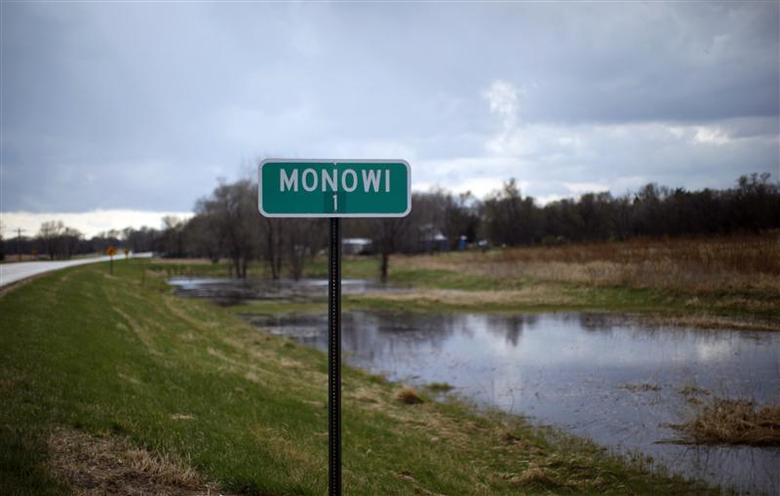The Officially-Living Person That Doesn’t Exist
In 2004, a man named Rudy Eiler died, leaving his wife Elsie. Today, the 87-year-old Elsie Eiler is the mayor of Monowi, Nebraska, the nation’s smallest incorporated municipality, and she has been in that role since Rudy’s death. It hasn’t been hard for her to get elected — no one has ever run against her. No one can, because Eiler is Monowi, Nebraska’s only voter — and, as seen in the population sign below, she’s the only resident.
Maybe.

The Eilers moved to Monowi sometime before 1971, and when they did, about two dozen others still lived there. But by the 2000 census, the couple were the only two people remaining, and when Rudy died in 2004, Elsie became the entire population of the town. And that’s still true today. If you visit Monowi, you’ll likely meet her. Beyond being mayor, she also runs the town’s only restaurant, the Monowi Tavern, opening its doors to guests every day but Monday. Because Monowi is the nation’s only town with only one resident, the eatery has become a bit of a tourist trap; as Travel and Leisure reported in 2018, “she’s welcomed visitors from 47 states and 41 countries and counting.” She’s also the town’s librarian — after Rudy’s death, she opened a small library in his memory, and being the only person in town, she’s in charge of that, too. Her fame as the only person in a one-person town grew so big that in 2018, fast food chain Arby’s featured her in one of their commercials, seen here. Oh, and the only home in town? It’s hers.
So when census workers came to Monowi (or mailed Elsie her form) in 2020, there wasn’t a lot to do. With only one household and only one person living therein, all you need to do is count to 1. A preschooler could have done the job. And yet, when the Census Bureau released its official data in August of 2021, the population of Monowi was listed as 2.
No, they didn’t count Rudy’s ghost, and no, there isn’t a second person living in Monowi. As Eiler confirmed to the Lincoln Journal-Star, as far as she knew — and she would know — there wasn’t a second person living in Monowi. (That said, she joked, “if you find out who he is, let me know.”) The person wasn’t quite made up, either. He just moved — at least, as far as the data was concerned. And the incorrect data wasn’t a mistake; it was intentional, and kind of makes sense.
The problem is one of privacy. Census data is made available to the general public and often contains personal information, such as your religion, national origin, or even your income range. In most cases — say, if you were doing a county-wide survey of the area in which Monowi is — that personal information can’t be easily traced back to the individual respondent. But when you’re dealing with small towns, that’s a problem. If you have a town of a dozen people, it’s not very hard for someone to dive into the data to figure out a bunch of stuff. The solution is to add some noise to the data set by shifting records into the wrong towns. As the Journal-Star explained, the Census Bureau “doesn’t invent respondents” but “it does shift them from one census block or tract to another. And while the discrepancies might be apparent and confusing at that micro level — like when a town’s only resident is shocked to hear she has a neighbor — the numbers are still accurate when zoomed farther out, like at the congressional district level.”
Of course, in the case of Monowi, this automated reshuffling doesn’t do much — the added data isn’t hard to tease out, and in any event, Elsie’s a local celebrity whose personal life is already more of a public matter than what the Census data would likely divine. But Elsie doesn’t seem concerned. The good news for her is that, despite the data, there’s no one hiding out in her attic.
Bonus fact: Arby’s signature sandwich is a roast beef one, which gives strength to the legend that the chain is named after the food. “Arby’s” is named after the letters “R.B.,” but sadly, “R.B.” doesn’t stand for “roast beef” in this case. It stands for Raffel Brothers — the chain was founded by brothers Forrest Raffel and Raffel in 1964, and they named the chain after themselves. Oh well.
From the Archives: Fore for Five: The town that was created so that a dozen or so people could play golf on Sunday.
